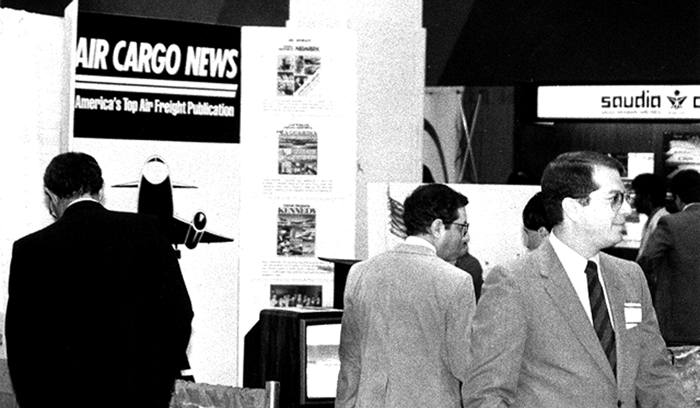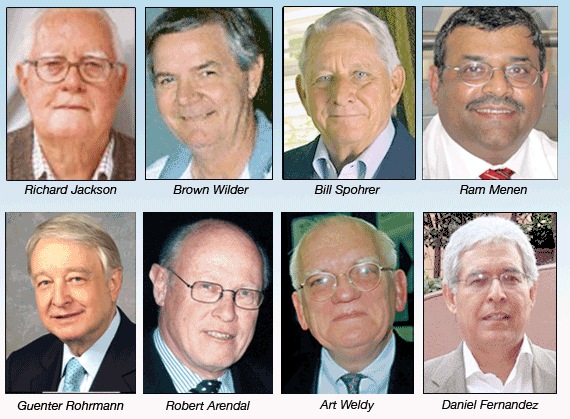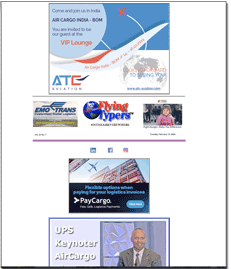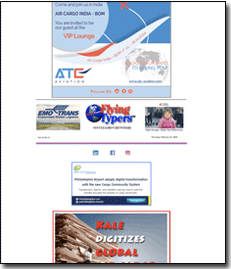 |
Greek theatre saw its climax with the establishment
of catharsis, when the difficult plot of the play, often a tragedy, was
resolved through the phenomenon of anagnorisis, or agnition. In time,
the initially simple stage process got jumbled, as reaching the climax
through the agnition was becoming more and more difficult. But theatre
in ancient Greece was no trinket, it was a very important affair, with
big political implications. Can we say . . . it was their
equivalent to our television? With no catharsis on stage most of the objectives
were at risk and the audiences’ favor could falter. Keeping the
public glued to its seat was imperative, something had to be done. In
order to maintain the popular interest by ensuring a happy ending (not
always), there came an ingenious solution which was named  i.e.
'god from the machine'. When Greece culturally conquered Rome, which politically
had conquered Greece, with its conspicuous legacy of civilization (in
Horace: Graecia capta ferum victorem cepit et artes intulit agresti Latio),
the expression was translated into Latin and this is the term that has
transcended many centuries and is still in use today: deus ex machina. i.e.
'god from the machine'. When Greece culturally conquered Rome, which politically
had conquered Greece, with its conspicuous legacy of civilization (in
Horace: Graecia capta ferum victorem cepit et artes intulit agresti Latio),
the expression was translated into Latin and this is the term that has
transcended many centuries and is still in use today: deus ex machina.
Why am I saying this? In a not so far-fetched
situation, which includes a number of our aficionados and friends, one
for all, TIACA, perhaps we need a god to appear on the scene from a machine,
before all things must pass . . .
Let us get into this plot and explain what
we have in mind. Next week in South America, beautiful São Paulo
hosts the 28th gathering of Intermodal South America (ISA) 2024, being
held March 5-7 at São Paulo Expo Brazil. With more than 500 confirmed
exhibitions Intermodal South America is the “Big Daddy” of
logistics trade shows in South America for this year and it will appear
in four pavilions at the exhibition center, delivering the latest trends
in the industry, solutions, services, and equipment to the event, along
with plenty of technology and innovation! This is a wonderful opportunity
indeed for the industry and for the entire continent.
In this age where hope for some adjacent
rippling impact cannot be neglected, TIACA launches its first #TIACAEventLatinAmerica,
March 7-8 stating hopefully: “Our event will draw industry leaders
from across the globe for our first, a two-day meeting at Gran Estanplaza
Berrini Hotel.” From any point of view an event that cannot be missed,
plausibly this was arranged with the objective of catching hold of some
of ISA traffic and excitement. We sincerely hope for TIACA and for the
industry that both events will benefit from one another’s influence.
There is however something that we believe
is worth noting and may not necessarily be completely positive: TIACA
is chaired by Steven Polmans for an additional term as decided in Brussels
last year and it has located its event about a half hour away from the
Intermodal Expo Center in São Paulo. Half an hour in a city like
São Paulo is not a negligible distance, in particular if you come
from places where transportation is organized in a different manner. Aside
from anything else, it is not so certain that many ISA attendees will
spend additional days in Brazil talking logistics, after an estimated
100 speakers deliver more than 60 hours of content to an estimated audience
of 40K who are expected to attend Intermodal South America, but on the
other hand one could say that even if a fraction decided to do it, this
would give TIACA wings to fly. Considering how difficult it is to gather
a big audience today for any trade association, it is a worthy attempt.
We wish them well and, if the numbers are decent, Polmans will be hailed
as the deus ex machina of this play. . . This being said, recently we
have registered reasons for concern, and to a certain degree we share
them. Obviously we can be wrong, but we have the right to have an opinion
and we have the duty to make it clear for our readers, as here follows.
We are a publication and we consider it
our duty to deliver content, news and opinions, in particular in our field
of action, i.e. aviation, logistics, air cargo and the people who populate
this wonderful business. We speak freely and independently about these
wonderful people and their choices, their successes and, as it happens,
sometimes of their retreats. We speak of them, not for them.

1982—Our Air Cargo News booth at the
last Air Cargo Forum organized by the SAE at the Hilton Hotel in New
York City. |
Speaking of The International Air Cargo
Association, we wonder how did TIACA, this idea founded in the USA originally
by the Society of Automotive Engineers (SAE), itself begun in 1905 by
people like Henry Ford, for all appearances end up being controlled by
one publication? Steve Polmans, who had already served for two terms,
reappeared at that post once more as TIACA Board changed the by-laws and
extended the two-term limit rule. Our media check reveals that Steve Polmans,
TIACA Chairman, is also now the Managing Director of Air Cargo Week,
a publication owned by Audrey Serjebi’s LemonQueen PR agency, which
also serves as the advertising and PR outfit for some major airline and
air cargo companies. We are in the year of the dragon, but it seems the
dragon could be flaming on its own tail here? TIACA is chaired by a publisher
who also serves as MD of a publication that competes with scores of other
cargo media.
We are not sure that this situation is in
line with TIACA’s stated mission: “TIACA supports its members
and works with industry partners and regulators to advocate and drive
change for a safe, profitable and united air cargo industry.” At
first sight, the deus ex machina in this performance seems to be unable
to resolve the plot, which becomes thicker and seems to move farther away
from catharsis. As baseball returns in the U.S., TIACA’s position
reminds us of a book written by Jimmy Breslin titled: “Can't
Anybody Here Play This Game?” The book chronicles the first
season (1962) of the Mets, an expansion team that lost so many games the
title was uttered in total frustration by Mets manager Casey Stengel.
We are adamant the press should be independent and trade associations
should be perfectly free to pursue their statutory goals, we do not believe
mixing the two is a good idea. We are not alone in this perception, too.
Alex Lennane, Publisher of The Loadstar,
on the Loadstar Podcast put it rather succintly: “The whole
point of TIACA is to identify and promote business practice and this is
poor business practice.” After explaining the concept, she completed:
“additionally TIACA is endorsing something that is bad for the industry.
It points to how little TIACA understands media and how important media
is to the industry. Members (TIACA) approached me and voiced their concern
as well.” The Loadstar’s podcast interviewer Mike (Sky) King
summed up the situation perfectly in very few words:
“It is incestuous.” he said.
These are pretty clear expressions that
we report as a duty of complete information; the question on possibly
incompatible interests exists, as pointed out by our colleagues, and we
really do not have an answer right now. We can only hope that TIACA will
have the steering power to keep the bar and pursue the interests of its
members without uncertainties.
I recall attending the first TIACA Board
meeting at the In and Out Club in London. Garth Davies, then
TIACA SecGen insisted we ante up USD$2000.00 for an associate membership
before he would allow me into the meetings. So of course we put it up.
I noticed Ray Crane, founder of the1983 established TabMag Air Cargo
News, UK was there and myself of Air Cargo News established almost
50 years ago in 1975 in America, as we sat there just looking at each
other. I found out during the meetings that Garth had waived ACNUK's payment
of USD$10,000 but announced ACNUK as a trustee.
As the only paid-up media at that first
meeting I was incensed and got up to leave the meeting, but Brown Wilder,
CEO of Air Cargo Inc. followed me out and talked me down off the ledge.
 |
I have always been grateful for Brown thinking
TIACA is such a wonderful idea . . . a place in air cargo
that welcomes and supports all the modes of transportation. Several times
in the 30 plus years since, we have seen TIACA; and have witnessed similar
situations and followed TIACA with its ups and downs. We are not so sure
now that this situation remains in keep with the original premises. This
latest kerfuffle, with a publication at TIACA gaining unexpected influence
at the organization, can only be seen through the prism of time, what
goes around comes around: time will tell. As we said, we have questions,
but we do not wish to jump to conclusions on an affair that only TIACA
Members can decide upon.
Right at the beginning of the formation
of this association, we decided to not give up on TIACA, but rather to
become a disinterested observer of the organization and have continued
in that role ever since. We hope our unbiased attention has been appreciated.
In that capacity, I have to say I am fortunate to have known some wonderful,
dedicated people like John Emery Jr., Bill Spohrer, Bob Arendal, Julie
Kupersmit, Guenter Rohrmann, Ram Menen, Brown Wilder, Dick Jackson, Art
Weldy, Daniel Fernandez, Bill Boesch and the list could go on and on,
all pioneers and advocates for this industry that we love.
So what can we say at this point of the
play: anyone for tennis? We know just too well that, if the players play
well, the game is fair.
Geoffrey Arend/Marco Sorgetti |





